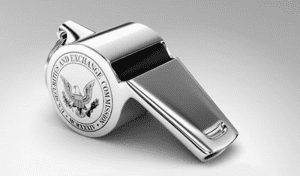In the year 2018 alone, the EEOC received 90,558 charges of discrimination against employers, but only a few cases made it to court.
If you have recently been fired, you are probably experiencing considerable stress over when you will find another job and how you will pay your bills. If your firing was not justified, you may have considered suing the company you worked for, for damages. Before you consult an attorney, you should be aware of the legal grounds for a wrongful termination lawsuit.
In spite of the name, wrongful termination does not just mean you were terminated for reasons that you feel were not justified. California is an at-will state, which means that an employer does not have to give you a reason for firing you. There are certain conditions that must exist in order for a wrongful termination lawsuit to be successful. There are several categories into which legitimate wrongful termination lawsuits fall.
Violation of Civil Rights Laws
Your civil rights are the most important privileges you enjoy as an American citizen. If you have been fired because of your race, gender, religion, or disability, you may file a complaint with the EEOC or the California Fair Housing and Employment office. The Supreme Court recently decided that discrimination against gay and transgender people is illegal and if you think you may have been fired because of your sexual orientation or for being transgender, you may file a complaint with the EEOC.
In the year 2018 alone, the EEOC received 90,558 charges of discrimination against employers, but only a few cases made it to court. It is very important to document everything when trying to establish that your employer discriminated against you rather than firing you for legitimate reasons.
If you are ever excluded from meetings or not made aware of promotions that are available, you will want to document when those meetings and promotions took place.
If you overhear jokes about race, religion, or gender, you will want to document the time and date of the comment, what was said, and who said it. If the company shows a bias towards a particular religion such as having prayers in meetings, you will want to do that as well.
Retaliation
When an employee blows the whistle on a company for violation of the law, it is not uncommon for an employer to retaliate. They may give you higher goals to reach, demote you or give you working conditions that make your job impossible to do.

It is illegal for a company to retaliate against you if you have reported illegal activity or if you have refused to participate in illegal activity.
Breaches of Good Faith and Fair Dealing
Sometimes an employer won’t fire you because they do not want to run the risk of a lawsuit and they do not want you to file for unemployment. They may instead try to do things to encourage you to quit, such as transferring you to another part of town or transferring you into a department in which you do not want to work.
In other instances, an employer does not want to pay a salesman a commission, so they will fire the salesman before the commission is paid out. They may also fabricate reasons for firing you, so that they may hire someone else who will work for less money.
If you have experienced any of these forms of discrimination at work, you should contact a Wrongful Termination Attorney in Los Angeles. A professional employment attorney will know just what arguments to use to win your case.
Authoritative Sources:
https://leginfo.legislature.ca.gov/faces/codes_displaySection.xhtml?lawCode=LAB§ionNum=1102.5


Join the conversation!